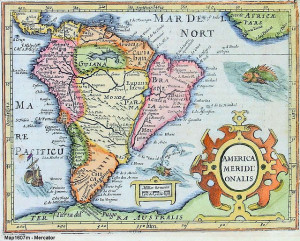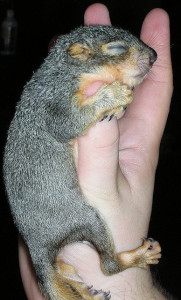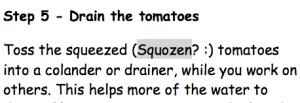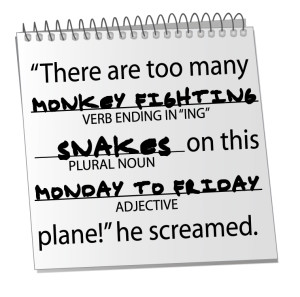Creativity needs quantity to produce quality

CC image Mapa antiguo de America del Sur via Douglas Fernandes on Flickr. Some rights reserved.
I have tons of ideas. The problem isn’t a shortage of ideas. I have ideas the way a dog on the street has fleas, the way South Carolina has mosquitos in the summer. I have ideas bothering me all the time; they itch; they plague me. I swat about my head and shoulders, trying to end the nuisance. Instead, I miss and get irritated. And maybe a headache, if I whack too hard.
I’ve never had a problem getting ideas. The trouble arises when I start evaluating them. How many of them are good? I get annoyed because so many of them are nascent ideas, ideas in utero, provisional ideas. Why can’t I have any better ideas than these? I ask myself. These aren’t good enough. I need improvement.
Sound familiar?
I’m not a betting woman, but I’m willing to bet that you do the same to your ideas. You want good ones, and most don’t measure up. So you swat them. Or use broad-spectrum anti-idea juice (“I never have any good ideas!” you tell yourself. Later on you are amazed how true that is).
Idea-killing is counterproductive
I’ve been known to massacre the pesky, low-value ideas which make merry about my head and shoulders. When more return, I equip myself with DEET.
And then wonder where the buzz has gone.
I read a fascinating article about the insects in the cornfields of the American Midwest. Or, more precisely, the lack of insects.
Turns out there’s a shocking absence of hum in our fields of monoculture.
Studies have shown that the diversity and number of insects on American cropland has plummeted. This should surprise no one. After all, that’s what pesticides are for—to kill pests.
The trouble is, some of these “pests” are pollinators. Their absence creates problems in the environment.
I feel that way about my ideas. The instant I fumigate the pests — No, can’t have this here, trying to grow quality — almost all of them disappear.
Ideas take us places
Sometimes, as with me, they literally are the map to new adventure.
My mother has an atlas — a huge, bound book, two feet tall and a foot wide — printed in the days of the USSR. The world is broken down by continent, and within each continent the countries are set off from each other by color: brilliant pinks, yellows, neon blues and greens. Rivers are small, squiggly things, their names like faded Egyptian hieroglyphs. The seas are huge and strange, the contours of the shorelines, mysteries. The atlas was out of date by the time I started hauling it off the top shelf, but that didn’t stop me from poring over the pages for hours, tracing rivers and mountain ranges with my fingertips.
At some point I conceived of the idea of making a map out of our backyard — and not just our backyard, but all the adjoining backyards, too — creating countries, enormous landscapes, and adventure. I didn’t stop to think about this idea. I walked around with a notebook and a pen, and started drawing.
I included topographic features: a low, loose rock wall separated the long side of our yard from one neighbor: it became a mountain range. The incline from our yard to our other neighbors’ fence became a canyon; the fence, a cliff. At one end of the canyon, a brace to a nearby tree with branches just the right height led to climbing opportunities. The tire swing was featured on my map; the stone wall at the back of the garden became a high-wire act. All the features received names. As did the under-the-deck area, which was boxed off with wooden latticework, and the side of the house, which was a wall of hostas in the summertime, so thick spiders could parade across from one side to the other and knit webs that got all over my face and hair (insert shriek here).
I made a half-dozen versions of this map over the years. I drew in notebooks and tucked copies into my diary. My friend T and I constructed games located in the places detailed in my maps. We spent hours exploring different worlds.
We don’t get one without the other
Ideas are collegial, and they like to hang out together in groups. When we get rid of the “bad” ones, we are stuck with none: a clean, antiseptic monoculture of the mind, lacking any hum.
When we let them grow wild, yes, we get spiders in our hair, but we also find portals to new dimensions.
Let’s stop killing our ideas. We don’t know where they might take us.
== == ==
What’s one crazy idea that brought you magic and adventure?







